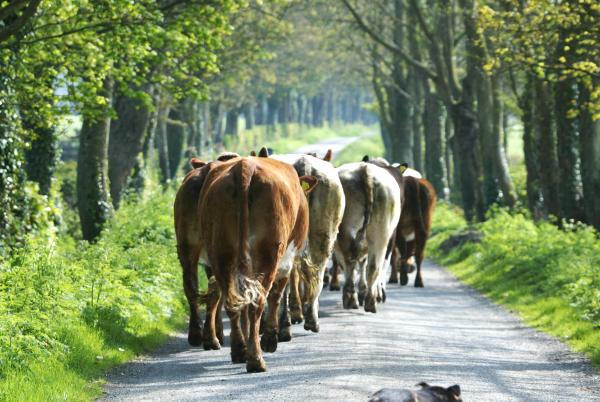“My heifers recently broke out onto the public road and damaged a passing car. Thankfully, the driver was ok but his car is a write-off. I gave my insurance details to the driver and reported the accident to my insurer. I am not sure of the law so can you advise as to whether I will be held responsible for the damage?”
Many civil claims are brought as a result of road traffic accidents caused by farm animals straying on to a public road. In such cases, the law imposes a duty of care on farmers to take such care as is reasonable to see that damage is not caused by an animal straying on to a public road.
While the onus of proof primarily lies upon the car owner who is alleging negligence, once evidence is given in a case that a collision took place with animals that had wandered on to the public road and the car owner was in a position to identify the owner of the animals, then there is a case to be answered by the farmer. At this point, there is a presumption that the farmer was negligent and he/she must prove on the balance of probabilities that he/she had taken such care as was reasonable to see that damage was not caused by his/her animals escaping from the land on to the public road.
As long as the farmer is able to show that he took reasonable care by having adequate fencing and a locked gate (if the circumstances require), he/she is not required to prove how the animals came to be on the road – whether the animals jumped the fence or whether a gate was left open by some unknown person, for example.
So, if a farmer and an expert on his behalf (if necessary) can give evidence that all standard precautions in the way of fencing had been taken and effectively therefore that the cows did not stray on to the road due to inadequate fencing, the fact that the animals succeeded in escaping on to the road is not the result of any negligence on the farmer’s behalf. Consequently, the farmer cannot be held liable.
It can be seen from case law in the area that a farmer should bolt the gate on to the lands where stock are held and also lock the gate to show that he took reasonable precautions. Additionally, the farmer should ensure that fencing is maintained in a proper condition and is stock proof. The condition of the fencing and gates leading into a farmer’s premises are carefully considered in any action to determine whether the defendant farmer had exercised reasonable care in maintaining his fences in a stock-proof condition and had taken all reasonable steps to ensure that his stock did not stray on to the public road.
In any event, the terms and conditions of the Single Payment Scheme generally require land parcels to be appropriately fenced, which they define as being stock proof fencing that will control the applicant’s animals and also the neighbouring farmers animals; so that this standard is already being met in many cases.
It is also worth highlighting that Section 8 of the Animal Health and Welfare Act 2013 imposes a prohibition on farm animals straying.
It provides that a person who has a farm animal in their possession or under their control should take all reasonable measures to ensure that the animal is unable to stray from the land where it is kept. Further, it provides that all buildings, gates, fences, etc, used to contain the animal should be constructed and maintained in a manner that minimises the risk that the animal will stray. An offence under the act may be prosecuted summarily by the Minister for Agriculture, the local authority or a member of the Garda Siochana and is punishable by a fine not exceeding €5,000. This essentially replicates the requirements regarding the duty of care as set out above.
However, the act specifically provides that in assessing whether gates, fences, etc, are sufficient to ensure that the animal is unable to stray from the land, the owner should have regard to the animal’s nature, type, species, breed, development and environment.
Accordingly, the measures required to prevent a bull from straying will vary to those measures required to prevent a calf from straying, for example.
Assuming the terms of your insurance cover the incident, it is likely that they will progress any claim on your behalf. Even though you may have an arguable defence to a claim, in that you took reasonable care to ensure that your animals would not stray from your land, it is often regarded as prudent by those processing insurance claims to settle the claim rather than run the risk of the case being lost in court. Accordingly, the case may be settled even though you may feel that you should not be held liable for the incident.
Disclaimer: The information in this article is intended as a general guide only. While every care is taken to ensure accuracy of information contained in this article, Aisling Meehan, Agricultural Solicitors does not accept responsibility for errors or omissions howsoever arising. E-mail ameehan@farmersjournal.ie






 This is a subscriber-only article
This is a subscriber-only article





SHARING OPTIONS: